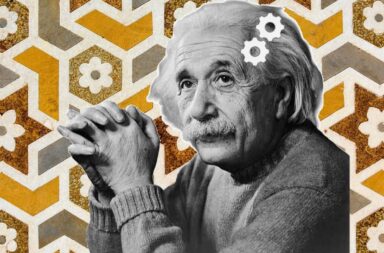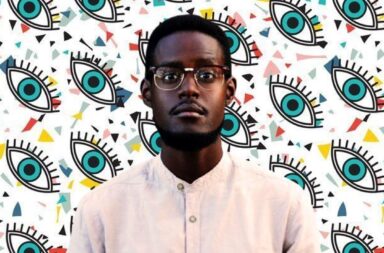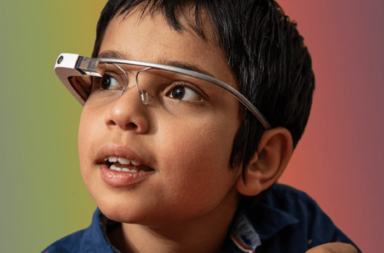It’s hard to say whether December 2019 was a naughty or nice end for the autism community. Sure, there were moments which could have put a smile on even Scrooge’s face (with 2, in particular, coming to mind). However, December also housed a headline which was so dark that it could extinguish even Rudolph’s red nose.
Nevertheless, one inarguable fact is that, while December is usually a time of silent nights, this month’s autism news made it feel more like a time of silent days and silent weeks. As such, while there wasn’t much opportunity for an honourable mentions list today which, instead, gives us ample opportunity to get right to the heart of a matter so that you can work out whether December’s autism news was a gift from Kris Kringle or the Grinch himself.
As always, links to the full stories can be accessed by clicking on the red titles and the bold headings.
The Top 5 Autism News Pieces for December 2019:
5. Autistic Twins Offer Insight Into Autism’s Envirometal Facts
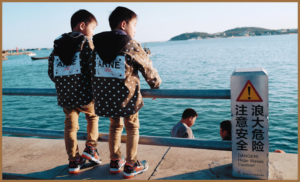
Like some kind of soap opera, December devilishly left the autism community on one of the biggest cliffhangers we have had in a long while; after a study posted on December 17th found that, while autism is almost certainly hereditary, the quirks and traits which come with it may not be.
This news comes after a study of over 300 identical twins with autism demonstrated that, despite two people having almost identical genetics, certain autistic aspects (like social ability) can vary. The article isn’t the easiest to read through – as autism is constantly referred to as a ‘disease’ but, if you can see past this terminology, it’s certainly worth checking out for its alternative look at how personalities may develop in autistic people.
Furthermore, while the study is still yet to be replicated (and therefore confirmed), it is something which must still remain a priority to study in 2020, so that we can better understand what exactly it is that could impact these differences – whether it be something in the physical vicinity of an autist or the invisible atmosphere around us all.
4. Health Magazine Claims It Can ‘Reverse Autism’
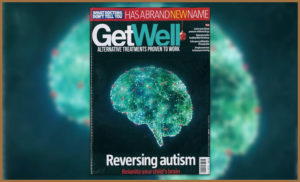
One of the biggest controversies to hit the autism community in December was one which came from the (supposed) Health magazine Get Well: in which during the publication’s final edition of the year, a cover story proudly proclaimed to have a 4-step-programme to reverse autism.
Needless to say, the story was utter poppycock, stuffed to the brim with offensive language, unverified therapies and outdated diets. However, instead of apologising for the lies within their magazine, Get Well put out a half-hearted statement claiming that those offended likely haven’t read the issue and that they are ‘denying genuine hope’ to people who need it.
As such, I made sure that before writing today, I had flicked through the entire Get Well December issue, and I can now confirm that there is nothing ‘genuine’ about Get Well or their predatory practices. Of course, this isn’t something I should be too surprised about, after all, sleazy organisations trying to make a quick quid of the vulnerable are a dime a dozen in our community. I do, however, question how Get Well found a position in the UK’s biggest storefronts in the first place and subsequently hope that the backlash from last month means we won’t see them again.
3. Lancaster University Look to Understand and Treat Gene Damage in Autistic People
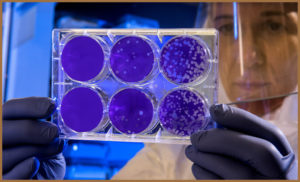
According to past studies into the cause of neurological conditions, it has been found that, if someone suffers from a genetic deletion in the 2p16.3 region of their chromosomes, then they are 15 times more likely to be autistic and 20 times more likely to have Tourette’s Syndrome.
This is quite a significant increase, which is still yet to be fully understood. Yet, for researchers at Lancaster University this December, it was cited that this association between autism and the gene deletion could guide the way for possible treatments for the deficits that it and autism can cause.
Although possible alternative therapies, which were suggested in the study, included the use of anaesthetics like ketamine, it was found that, due to the short lengths that these drugs have an impact for, they may not be appropriate for everyday use.
Despite this, further tests into the researcher’s claims will undoubtedly help to better understand the root cause of autism moving forward – helping to progress the available support which tackles the individual negative quirks without impacting the entire condition.
2. Putting the A.S. in Chistmas
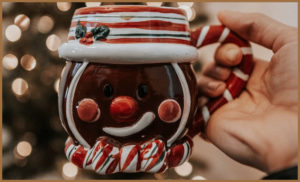
Christmas really is the most wonderful time of the year and, every 12 months, it’s incredible to see how increased autism awareness has meant more inclusive celebrations for our jolly community. In 2019’s celebrations, this was most prominent in the rise of the sensory-friendly Santa – as well as additional autism hours for autistic Christmas shoppers around the globe (although why you wouldn’t stay at home and get all your gifts online is beyond me).
In particular, I wanted to highlight some of the incredible lengths that many of 2019s sensory-friendly Santa’s went to. For example, where it was great to see that those emulating the spirit of the jolly red gift-bringer not only ensured that their grottos were full of sensory-friendly safe zones, but also by attending professional autism courses to ensure that every need was anticipated and cared for throughout December.
This all just goes to show that, while we do have our ups and downs, autism acceptance has come a long way in the past decade and sets the stage for even more growth in 2020 and decades to come.
1. Autistic Advocates Win Big
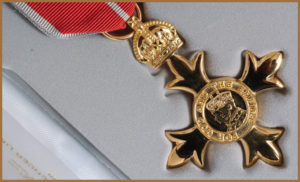
As always, December proved the ideal time to honour the individuals who have dedicated years of their lives in pursuit of bettering our community and, while this could be just another opportunity to praise Greta Thunberg (for her Time’s person of the year award), instead, I wanted to close out today by commending the incredible ambassadors who featured in last month’s New Year’s Honours list.
While I am sure I am going to miss a few names off the list, a few notable examples from said New Year’s Honour’s include:
- Grace Marion Redfern: Founding Member National Autistic Society, Cheshire
- Dr. Catriona Anne Stewart: Founder and Chair of Scottish Women’s Autism Network
- David Burns: Author of many a medical text (including those which support autistic people)
Although it’s a shame that another year has gone by and we still haven’t seen another autist knighted since Sir Anthony Hopkins (in 1993), there’s no denying that 2019 was a terrific year for autistic recognition. It’s great to see that these awards are becoming more diverse than ever and it definitely bids goodbye to the teenie years in the best possible way.
Carry on the Conversation:
While we’re on the topic of New Year’s Honours, why not let me know which notable Brit you believe deserves a knighthood next? Let me know in the comments below. And, if you haven’t seen what my New Year’s resolutions are for the site, then check out the post: Changes to Autistic & Unapologetic in 2020.
As always, I can also be found on Twitter @AutismRevised and via my email: AutisticandUnapologetic@gmail.com.
If you like what you have seen on the site today, then show your support by liking the Autistic & Unapologetic Facebook page. Also, don’t forget to sign up to the Autistic & Unapologetic newsletter (found on the sidebar on laptops and underneath if you are reading this via mobile) where I share weekly updates as well as a fascinating fact I have found throughout the week.
Thank you for reading and I will see you next week for more thoughts from across the spectrum!
